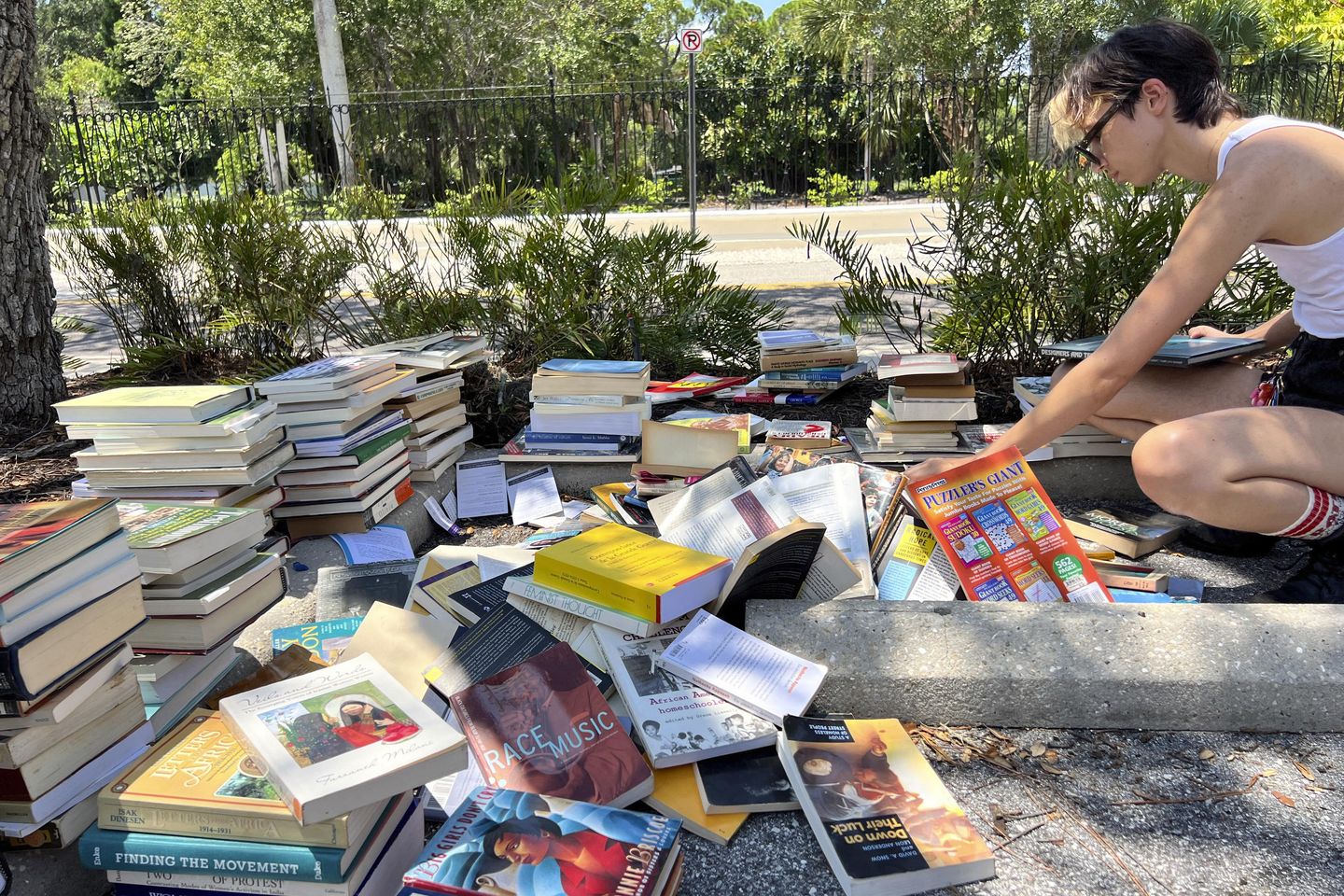In a shocking turn of events, the New College of Florida made headlines when it was discovered that hundreds of books were being thrown away in a dumpster from the college library. This incident has sparked controversy and reignited the ongoing culture wars in the state, especially given that the college’s governing board is largely made up of appointees of Republican Governor Ron DeSantis.
The New College of Florida, a small liberal arts college located in Sarasota, has long been known for its progressive values and commitment to academic freedom. However, the recent book dumping incident has raised concerns about the college’s commitment to intellectual diversity and the free exchange of ideas.
The books that were discarded in the dumpster reportedly included a wide range of titles on various subjects, from literature and history to science and politics. Many students and faculty members were shocked and dismayed to see valuable books being treated in such a disrespectful manner.
The timing of the book dumping is particularly concerning, as it comes at a time when conservative politicians in Florida are increasingly targeting educational institutions that they perceive as promoting liberal or progressive ideologies. Governor DeSantis, who has appointed several members to the college’s governing board, has been vocal about his opposition to what he sees as leftist indoctrination in schools and colleges.
The incident at the New College of Florida has only served to fuel the flames of this ongoing culture war, with critics accusing the college of censorship and intellectual suppression. Many are calling for a full investigation into the circumstances surrounding the book dumping and demanding accountability from the college’s administration.
In response to the outcry, the college has issued a statement claiming that the books were removed from the library as part of a routine deaccessioning process. According to the college, the discarded books were outdated, damaged, or duplicates that were no longer needed in the library’s collection.
However, many remain skeptical of this explanation, pointing out that the sheer volume of books being thrown away suggests a more deliberate and targeted effort. Some have also raised concerns about the lack of transparency in the deaccessioning process and the potential for censorship or bias in the selection of books to be discarded.
The controversy has put the New College of Florida in the national spotlight, with commentators from all sides weighing in on the implications of the book dumping incident. Some see it as a troubling sign of the growing politicization of higher education, while others view it as a necessary step to ensure academic integrity and accountability.
As the debate rages on, students and faculty at the New College of Florida are left grappling with the fallout from the book dumping and the broader implications for academic freedom and intellectual diversity on campus. Many are calling for greater transparency and oversight in the college’s decision-making processes to prevent similar incidents from happening in the future.
In the midst of this controversy, Governor DeSantis has come under increased scrutiny for his role in appointing members to the college’s governing board and the potential influence of his administration on campus policies. Critics argue that the governor’s political agenda is jeopardizing the autonomy and independence of academic institutions in the state.
Despite the backlash, the New College of Florida remains steadfast in its commitment to academic freedom and intellectual inquiry. The college has promised to review its deaccessioning policies and ensure that future decisions are made with greater transparency and input from the campus community.
As the dust settles on this divisive incident, the New College of Florida faces a challenging road ahead as it seeks to rebuild trust and credibility with students, faculty, and the public. The book dumping controversy may have brought the college to the forefront of the state’s culture wars, but it also serves as a reminder of the importance of upholding the principles of academic freedom and intellectual diversity in higher education.









